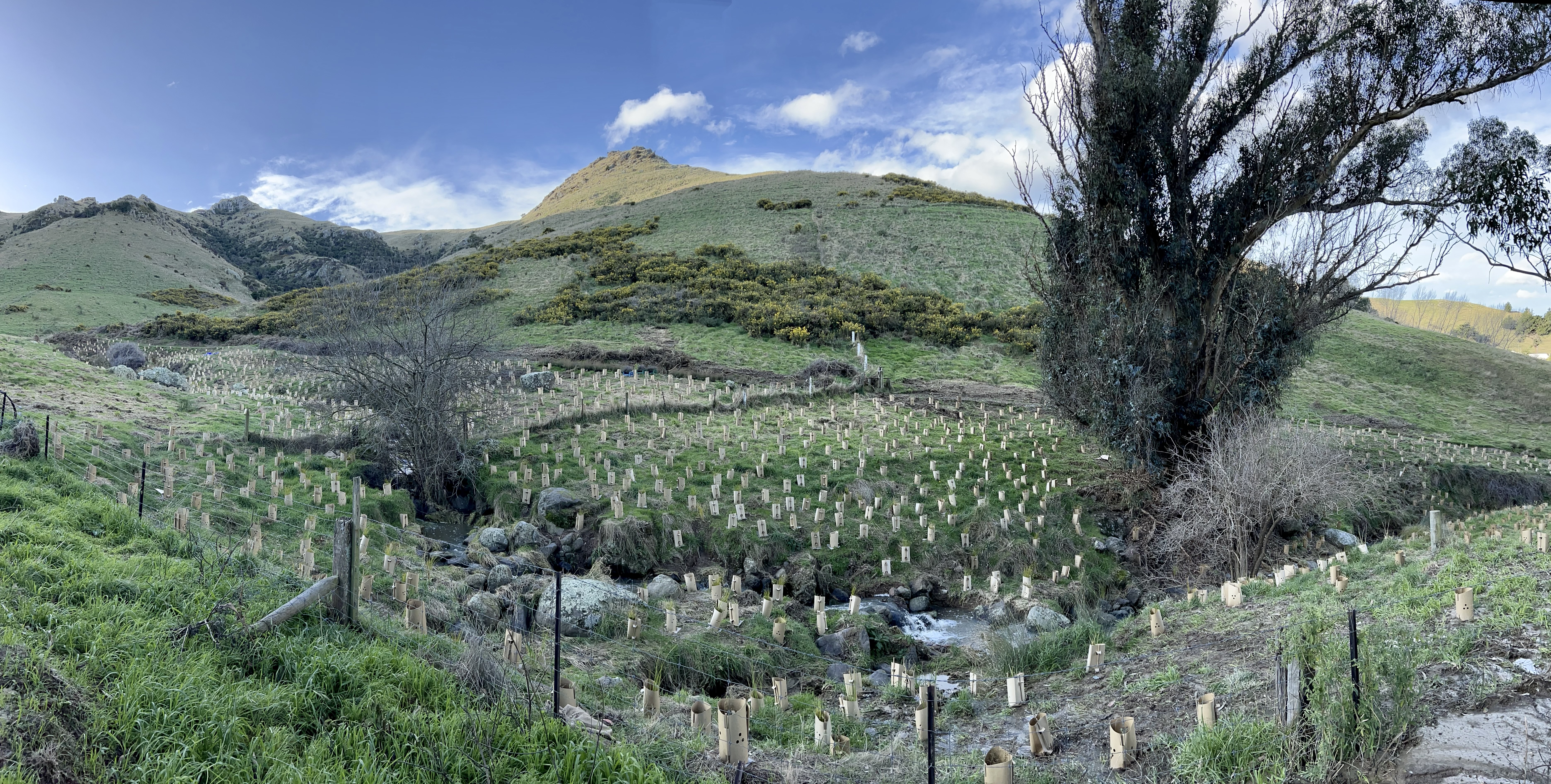Conservation project hopes to maintain momentum
Jul 17, 2023
By Daniel Nielsen
The leader of a Jobs for Nature project run by Te Hapū o Ngāti Wheke, in partnership with Living Springs and Conservation Volunteers New Zealand, is welcoming a funding transition strategy designed to keep the mahi going.
Jobs for Nature is a $1.19 billion programme that manages funding across multiple government agencies to benefit the environment. It launched in 2020 as part of the Covid-19 recovery package and supports 442 projects, which can be viewed on this map.
The programme is coming to an end, prompting concerns about a loss of jobs and momentum.
John Kottier, who leads the Jobs for Nature project for Te Hapū o Ngāti Wheke at Rāpaki on Banks Peninsula, says it is vital the pest-eradication and native planting continues.
He is worried the progress made in restoring bird life and improving soil and water quality on the ancestral whenua of the hapū will be lost.
“It is not just the jobs that will be lost but the momentum,” John Kottier says.
“We have made incredible progress in restoring bird life in those hills. There are loads of bellbirds and kereru. No tui yet, but they will appear in time. The dream is to have weka.”
Drone footage: Native planting
John Kottier says he is pleased a Jobs for Nature transition strategy has been developed. The strategy document, which is accessible here, aims to “carry the current momentum forward” and states its objective as transitioning projects beyond the Jobs for Nature funding.
The Ngāti Wheke-led project has employed 20 people, who for the last two years have worked in the hills and valleys above Rāpaki and Living Springs. It has been expanded to include partner projects in a bid to scale up and access more funding.
John Kottier says if funding could be maintained, the entire project including partners would employ 45 people and continue enhancing the environment on a vast section of Banks Peninsula with potential to expand further.
He explains how the mahi done has had flow-on effects. The quality of the stream that runs through the marae grounds into Whakaraupō (Lyttelton Harbour) has improved because of the planting in the hills.
“It is all connected. We are eradicating pests and planting natives, which is improving the whenua and waterways, which in turn enhances native wildlife,” John Kottier says.
“Our project is one project of many funded through Jobs for Nature. Like us, many other projects will be biting their fingernails about how to keep their teams of kaimahi and maintain the unprecedented conservation outcomes that this funding has allowed to happen.
“Papatūānuku needs all the help she can get now and it’s our responsibility to keep the momentum going. Pest animal control is comparable to weeding a garden; we’ve got to keep chipping away at it; because we all know how quickly the garden fills up with weeds when it’s left to its own devices.”
Jobs for Nature has funded a range of three- and four-year projects throughout the country, including braided river restoration, wetland revitalisation, invasive pest control, and mapping vegetation and waterways. Ngāi Tahu Papatipu Rūnanga lead several projects under the scheme, which has created hundreds of jobs for whānau.

Native planting: Te Rūnanga o Ngāti Wheke is leading a Jobs for Nature project, which is focused on native planting and pest trapping in the hills above Rāpaki on Banks Peninsula near Ōtautahi (Christchurch).